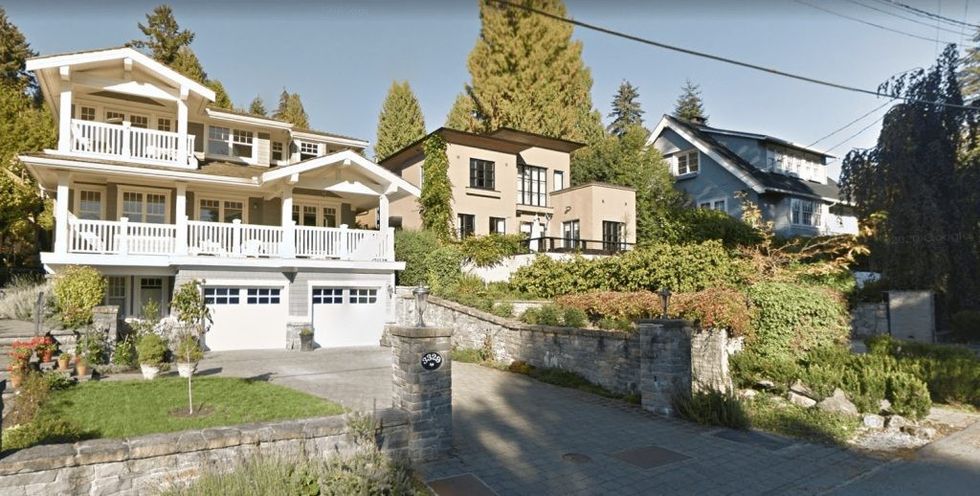In January, the federal government will introduce a tax that targets foreign, non-resident owners of empty or under-used housing. Housing experts say it’s a case of too little, too late, because other countries have been taxing foreign homeowners for years.
Hong Kong brought in a 15% surtax nearly a decade ago. And Britain, Australia, Denmark, Switzerland, Malaysia, Singapore, and Mexico have varying surtaxes and restrictions on foreign ownership. China and the Philippines have outright bans.
“Canada is just catching up to foreign ownership policies that the rest of the world introduced decades ago,” says Andy Yan, director of Simon Fraser University’s City Program. "This is nothing new. We're just late to the game."
READ: Are Investors the Cause, or Just the Blame, Behind Ontario’s Outrageous Housing Market?
But experts also say that because the federal surtax only targets non-citizens, it will scarcely address the problem of foreign money that is considered largely responsible for driving real estate prices in cities like Vancouver and Toronto, where prices have pushed local income earners either out of the market or into housing they can hardly afford. As several academics have pointed out, when outside wealth flows into a housing market, it de-couples prices from incomes, particularly when that wealth has the advantage of being untaxed. In other words, the average local income-earning taxpayer no `longer sets the price of the average house: they can't compete.
Evidence of the de-coupling is in the numbers. Statistics Canada 2016 census data on 2015 median incomes showed Vancouver households made $72,662. It was a record year for Vancouver’s real estate market. The benchmark price of a detached property by December 2015 reached $1,248,600, according to the Real Estate Board of Greater Vancouver, a 24% increase from the previous year. But how did those households drive those prices?
If we want to understand the markets, don’t fret over a homeowner’s citizenship status, say experts: Follow the money. For example, the federal tax will not address foreign money that is brought into the country by citizens who work abroad, and whose spouses live in Canada, known as satellite families.
A 2020 paper by public policy expert Josh Gordon, called Solving puzzles in the Canadian housing market, defines foreign ownership “as housing purchased primarily with income or wealth earned abroad and not taxed as income in Canada.”
That means citizenship is not a prerequisite of foreign ownership, which is how the federal government is too narrowly defining it.
His paper cites data that show the median assessed value of a detached house in the city owned by recent immigrants who arrived under the federal investor program was $2.55 million in 2018. However, the same group declared an average of only $20,000 in income within the first decade of their arrival in Canada, according to a federal government study from 2014.
Gordon made use of remarkable findings from the Canadian Housing Statistics Program (CHSP), showing that areas of Metro Vancouver with the highest levels of non-resident homeowners also had low declared average incomes, despite paying some of the highest housing prices.
The CHSP determines residency from a variety of data sources, including recent tax activity in Canada. If the majority of owners on the title of a property do not reside in Canada, then the property is deemed non-resident owned. This is key information, because it doesn’t look at citizenship, which is hardly useful, but at non-resident ownership arrangements, such as satellite families.
While the CHSP data are key in the study of de-coupled markets, more analysis is needed to show the amount of money that is flowing into Canadian real estate.

“The use of untaxed (and undeclared) foreign income and wealth has pushed up prices, and made it harder for tax-paying buyers to compete in prized segments,” writes Gordon. “If policy-makers wish to improve housing affordability for local working people, then policies to discourage or sharply curtail foreign ownership will be important.”
The BC government aimed to level the playing field with its Speculation & Vacancy Tax (SVT), introduced in 2018. Homeowners must annually declare whether the property is their primary residence, as well as their citizenship, and if the household on title has earned at least 50% of their incomes within Canada (targeting those satellite families). The program applies a 2% annual property surtax to either foreign owners or satellite families. An easy exemption from paying the tax is to simply rent the property out. More than 99% of homeowners in BC are exempt.
The idea behind the tax is to cool the market and to bring empty homes held for investment back online. The program has helped, and a CMHC Rental Market report showed that over two years more than 18,000 previously empty units had become occupied.
A couple of housing researchers have tried to point to the SVT’s reported low “foreign owner” numbers as an indication that foreign ownership isn’t prevalent in Canada.
However, they are cherry picking data if they only look at numbers based on citizenship, says SFU's Yan.
“With the discrepancy between CHSP data and SVT data, we could also be looking at a magnitude of tax evasion. SVT self-declarations are inherently pitfalls for analysis, with a sizable built-in financial motivation to avoid or evade taxes through creative self-reporting. It highlights a need for thorough and transparent verification and accountability, as well as the ongoing challenges to properly measure global wealth versus local incomes.”
The two sets of data don't make for easy comparison, says the CHSP's chief.
“The SVT asks owners to self-identify as either foreign citizens or if more than half of the household income of the owners comes from abroad (satellite families),” says Ottawa-based CHSP chief Jean-Philippe Deschamps-Laporte, in an email response. “The first is about citizenship status, not residency, and the second is about source of income, not residency. Neither concept neatly aligns with the CHSP’s concepts of residency ownership and residency participation.”
Once again, it’s not about the foreign owner, but about foreign money, and the understanding of the role it plays in Vancouver and Toronto housing markets, says Yan.
“These federal policies will finally help Canada catch up with the rest of the world -- at least to the extent that we’re officially acknowledging that our real estate is shaped by the global marketplace.”





















